The following is a summary of what the Coroner’s work includes:
Identification
Identifying the body of the deceased person by the next of kin is an important aspect of the Coroners investigation however, this can be distressing. If appropriate, arrangements can be made for someone else to do this for you.
Post Mortem
If a death cannot be certified by a registered medical practitioner, e.g. the family doctor, a hospital doctor, etc, or the death appears to be due to unnatural causes, the Coroner may require a post mortem examination to be carried out. The family will normally be fully informed in relation to the process before the post mortem is conducted. However, the permission or consent of the next of kin is not required prior to a Coroners post mortem examination.
Release for Burial
The Coroner makes every effort to release the body of the deceased for burial without any undue delay. In cases where there is a criminal investigation in to the death, the release of the body may take longer. Funeral arrangements should not be made until your chosen funeral director has been told of the date and time for the release of the body.
Registration
A death certificate can only be issued by the Registrar of Deaths when the Coroner has issued a Coroner’s Certificate. The Coroner may issue this after the post mortem report is received in deaths due to natural causes or after an inquest is held in other categories of death. While the Coroner is conducting their inquiries, on request they will issue you with an Interim Death Certificate which is acceptable to the Department of Employment Affairs and Social Protection for bereavement entitlements and other benefits claims.
Inquests
Most deaths reported to the Coroner do not require an inquest. If the Coroner considers the cause of death may be due to unnatural causes, they can hold an inquest, sometime with a jury. The purpose of the inquest is to establish the identity of the deceased, the date, place of death, cause of death and to the extent the Coroner considers it necessary the circumstances surrounding the death. In advance of an inquest the family may seek copies of documents the Coroner has compiled. Witnesses give evidence to assist the Coroner in understanding the circumstances surrounding a death and to make findings of fact. The witnesses may answer questions from the Coroner, the family and any other interested party in attendance. Family may ask questions directly of witnesses or may choose to be legally represented although this is not a requirement. At the conclusion of the inquest, a verdict is recorded and the court may make recommendations in the public interest. An inquest is an inquiry held in public by the Coroner.
Disclaimer: The contents of these pages are provided as an information guide only. They are intended to enhance public access to information about the coroners service. While every effort is made in preparing material for publication, no responsibility is accepted by or on behalf of the State for any errors, omissions or misleading statements on these pages or any site to which these pages connect. Although every effort is made to the reliability of listed sites, this cannot be taken as an endorsement of these sites.

